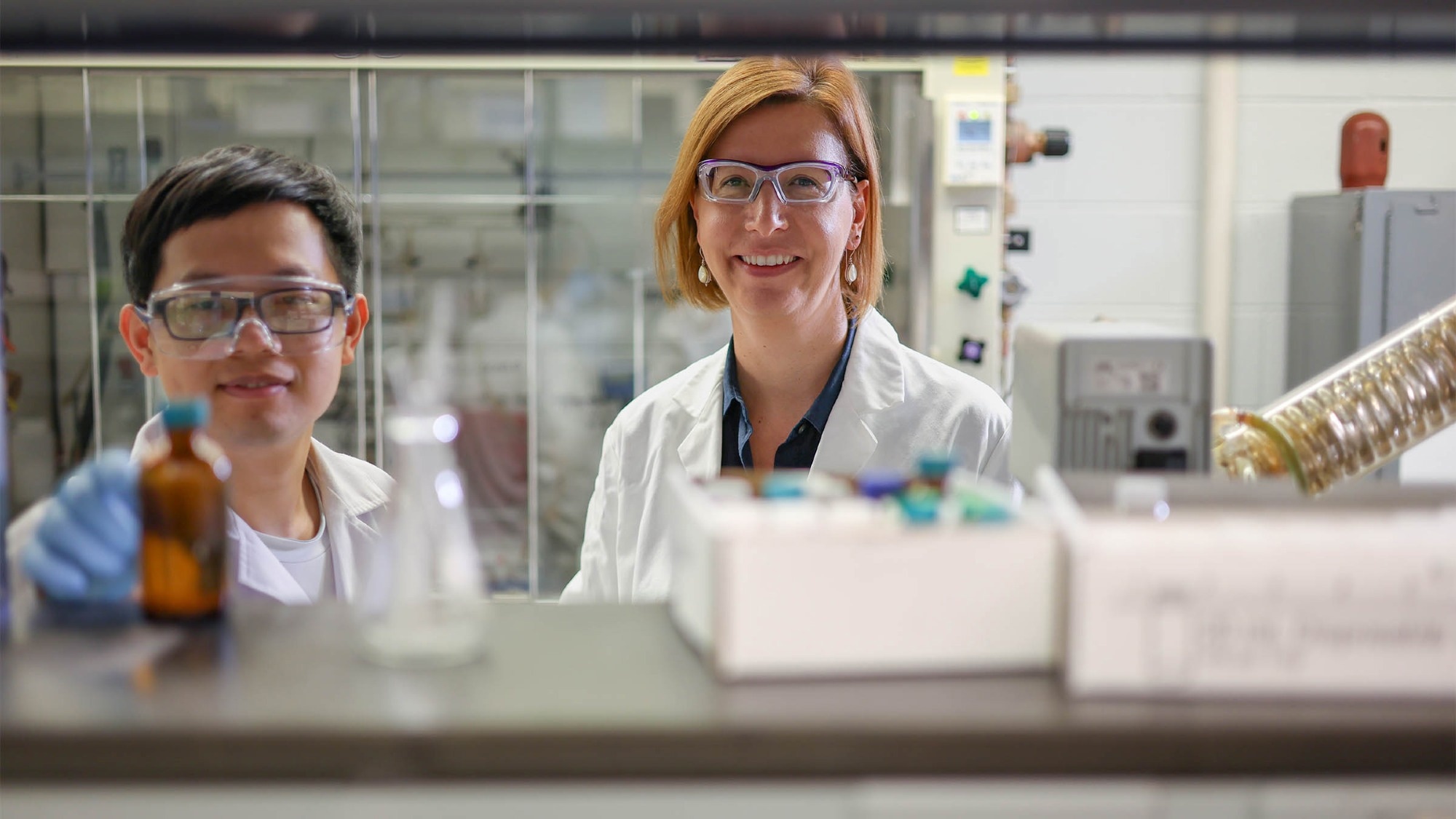Reviewed by Danielle Ellis, B.Sc.Sep 12 2023
Scientists at the University of Arizona Cancer Center have made a breakthrough by uncovering a novel category of compounds that target iron, impeding the growth of malignant cells cultured in a laboratory environment. The findings have been published in the Journal of the American Chemical Society.
 (From left) Yu-Shien Sung, a Doctoral Student in the Tomat Lab, and University of Arizona Cancer Center member Elisa Tomat, PhD, are studying an iron-targeting molecule that may lead to the development of new anticancer drugs. Image Credit: University of Arizona
(From left) Yu-Shien Sung, a Doctoral Student in the Tomat Lab, and University of Arizona Cancer Center member Elisa Tomat, PhD, are studying an iron-targeting molecule that may lead to the development of new anticancer drugs. Image Credit: University of Arizona
Cancer cells are what we call ‘addicted’ to iron, and so we are making compounds that are able to interfere with the availability of iron in cancer cells.”
Elisa Tomat PhD, Professor, Department of Chemistry and Biochemistry, College of Science, University of Arizona
Elisa Tomat is also a member of the UArizona Cancer Center.
This discovery holds the potential to pave the way for the creation of comprehensive, anti-cancer medications designed to target iron metabolism.
Collaborating with Tech Launch Arizona, the university's commercialization entity, the research team aims to license this technology to a company that can bring it to the market. A patent application is currently pending.
Iron stands out as the most prevalent transition metal in the human body, and as explained by Tomat, it holds a pivotal role in tumor progression and metastasis. Cancer cells heavily rely on various iron-dependent processes to sustain their rapid rates of proliferation, resulting in a greater need for this element compared to normal cells.
Tomat outlined the challenge faced by the research team, which was to capture iron within malignant cells while ensuring its availability to the rest of the body. To overcome this challenge, they focused on intracellular iron, utilizing compounds that activate only after being taken up by the cells.
As chemists, we can design and synthesize molecules that are able to bind iron only under certain conditions and not throughout the body. We've been working on various approaches toward this type of chemistry; we call these prochelator approaches because the chelator is the compound that binds the metal ion. The prochelator is the compound we designed to become activated only upon undergoing a certain reaction that occurs in cells.”
Elisa Tomat PhD, Professor, Department of Chemistry and Biochemistry, College of Science, University of Arizona
The inspiration for this research originated from a “common reagent,” a compound routinely used in laboratories around the globe to evaluate the effectiveness of drug candidates in suppressing the growth of cultured mammalian cells.
“Because iron is such a fundamental player that is important in many cancer types, and this high demand for iron is a general characteristic of malignancy, I've been interested in this strategy for a number of years,” adds Tomat, who is investigating iron chelators and their role in tumor progression for over a decade.
We're excited about this new strategy because we think this class of molecules can be further modified to optimize the properties and improve the antiproliferative activity and really become a way for us to impact the iron availability in malignant cells and halt cancer growth.”
Elisa Tomat PhD, Professor, Department of Chemistry and Biochemistry, College of Science, University of Arizona
Source:
Journal reference:
Xu, Z., et al. (2023). Design of Tetrazolium Cations for the Release of Antiproliferative Formazan Chelators in Mammalian Cells. Journal of the American Chemical Society. doi.org/10.1021/jacs.3c02033.